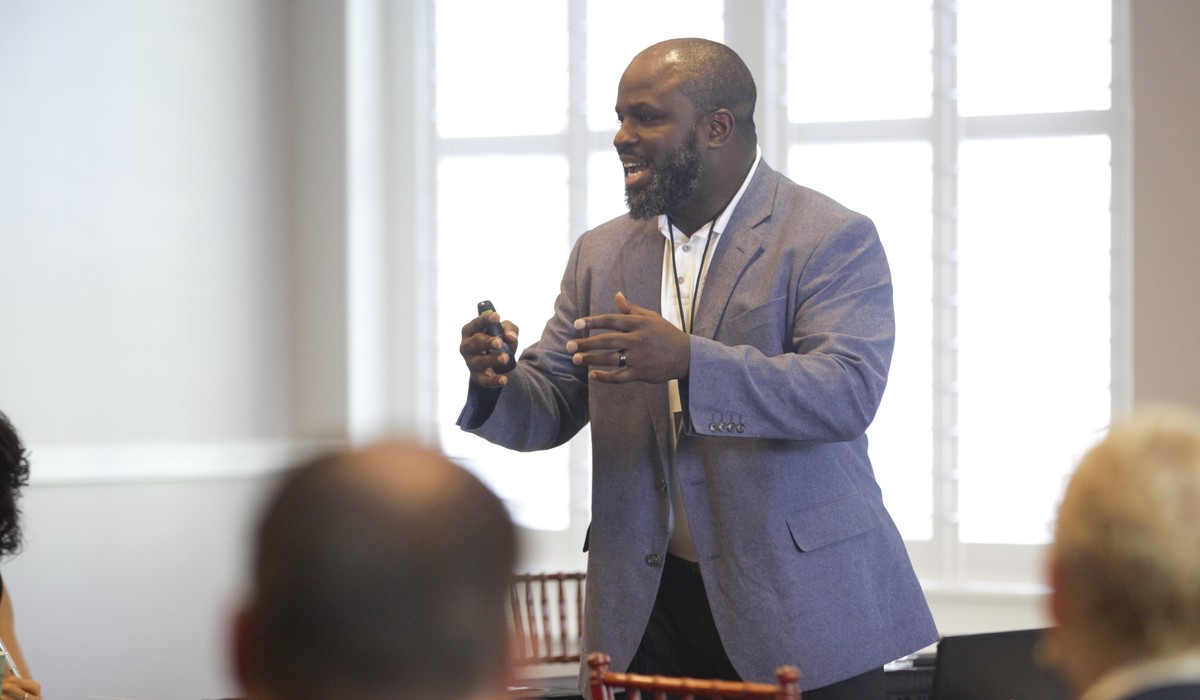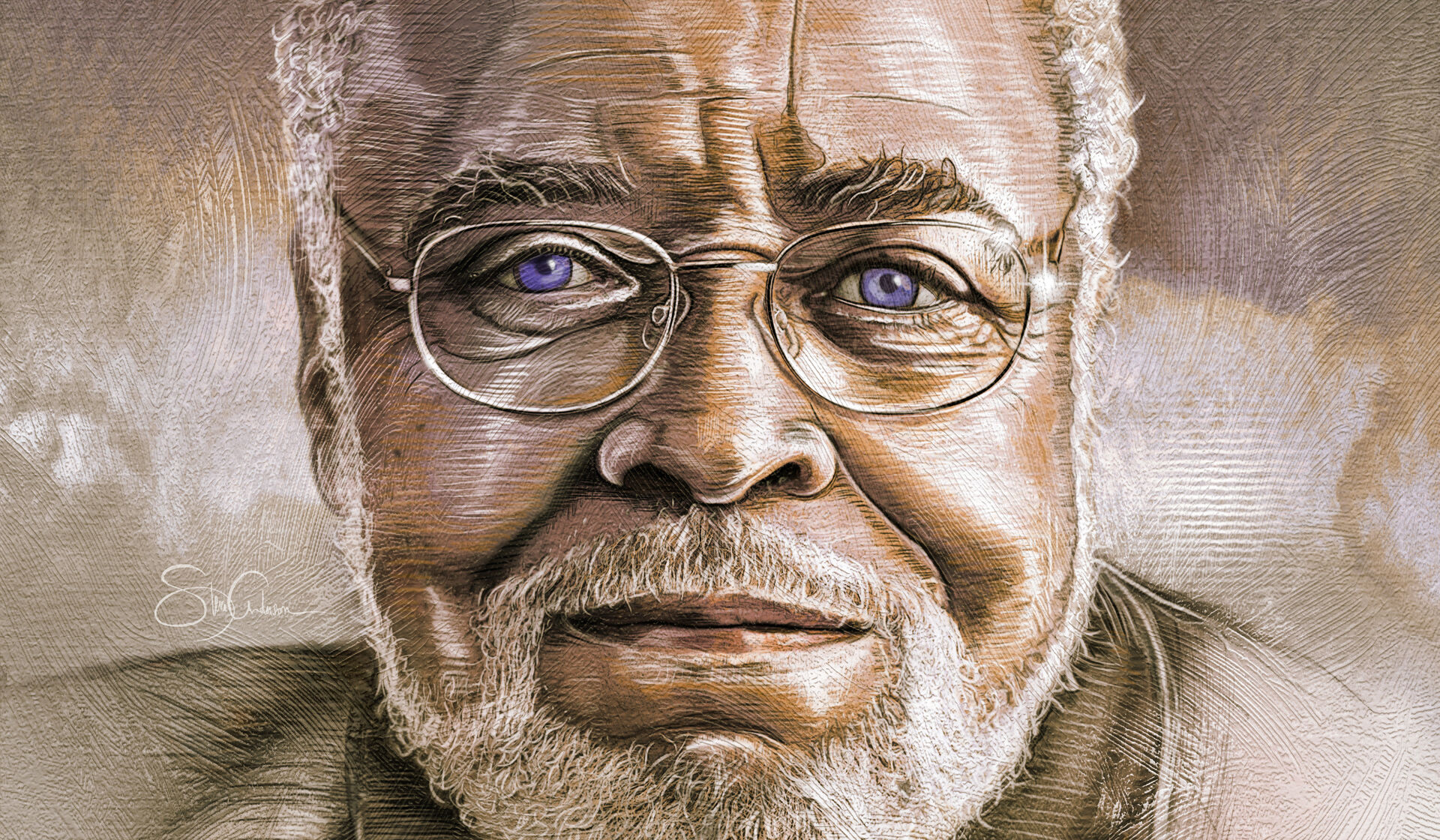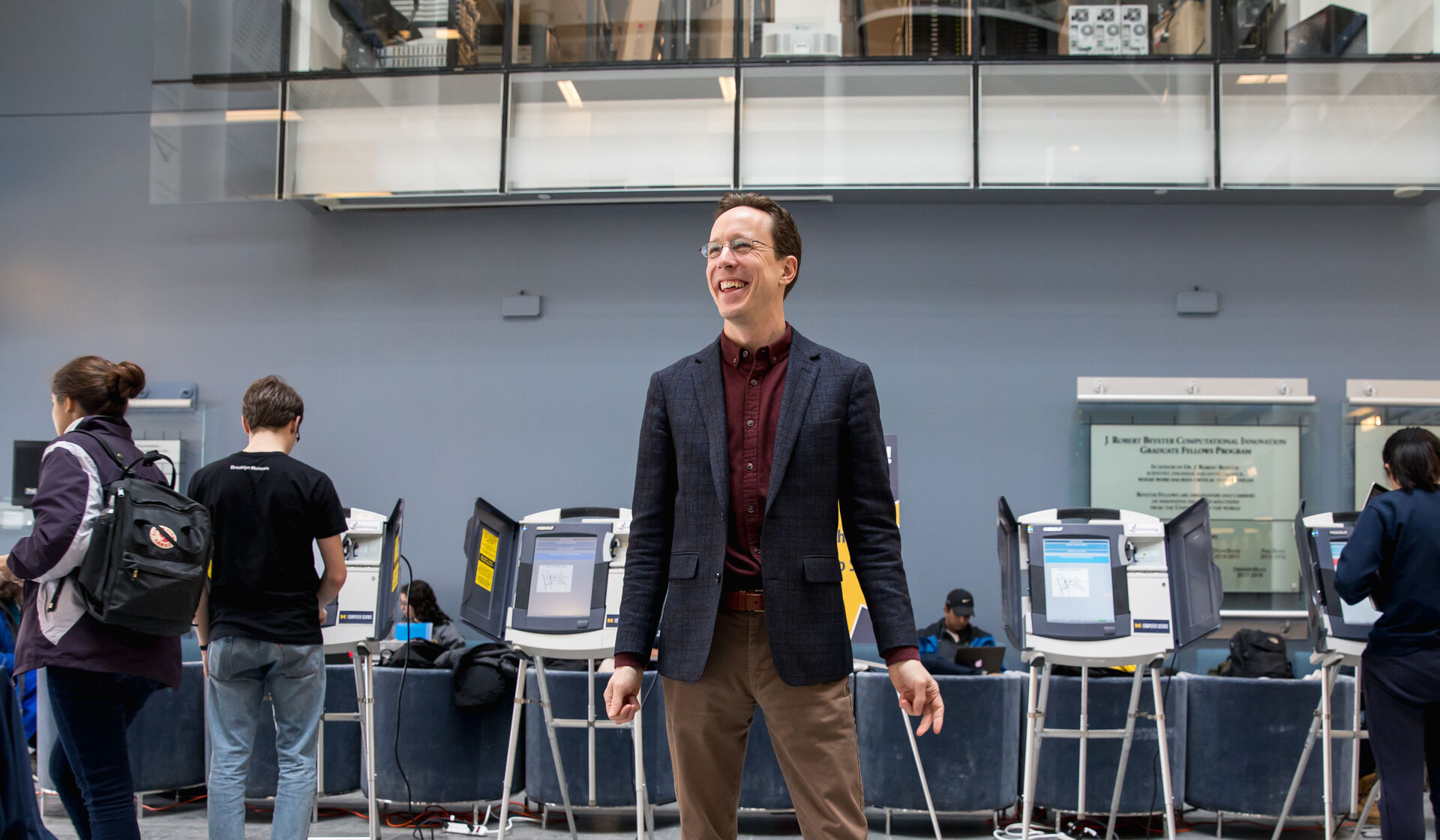This past winter, the Alumni Association, Football Alumni of Michigan, and U-M Black Alumni gathered a group of former University athletes for the virtual, two-part event “The Intersection of the Black Student and Black Student-Athlete Experience.” Part of the Diversity Dialogue Series, both discussions were moderated by Eric Mayes, ’98, MS’00, co-captain of the 1997 national championship Wolverine football team. Mayes is currently the executive director of an equity-focused, student-training research and evaluation center at the University of Arkansas. He shares how his time at U-M shaped his life and career as a higher education administrator and professor.
As I sit in my study looking at pictures of myself with the 1998 Rose Bowl championship team, at the White House, and graduating from Harvard with my two eldest children in my arms, I can’t help but think of the day I arrived at U-M. I stepped off the Greyhound bus in the late summer of 1994 and headed to Mosher-Jordan Hall. That three-hour journey from the west side of Michigan was the start of an experience that would change my life.
I am a first-generation college student and the grandson of a woman who completed only the third grade, but was rich with grit and wisdom. I am also the son of parents who grew up as sharecroppers in Mississippi and Missouri but instilled in me the value of a high-quality education.
Many of my childhood friends would not make the journey to such a highly selective college or university. Instead, they found themselves caught in roadblocks created by the toxic cocktail of structural inequity and poverty. Both have a crippling effect on the dreams and aspirations of far too many from our side of the tracks. I faced that same harsh reality but overcame those challenges, thanks to the support of caring adults and friends.
I was not a student-athlete when I arrived, but a relatively unknown walk-on player who would end up co-captain of a championship football team. After experiencing a season-ending injury, I encouraged my teammates from the sidelines. In turn, they handed me the Big Ten Championship trophy when we defeated Ohio State and carried me off the field.
That part of my story is well known. What is not known by many, is that after that remarkable season, I worked as a resident assistant in Alice Lloyd Hall. It helped pay for the cost of being a full-time U-M graduate student. It was then that I began to formally study the structural racial and economic barriers that inhibit and negatively impact so many of my African American peers.
These studies led me to pursue a doctorate. At Howard University, I examined ways to address and mediate the cultural incongruences and opportunity gaps that lead to differences in levels of academic achievement and success. That then led me to study the impact that language and culture have on cognition and learning in West Africa and South America. I studied the nexus of culturally responsive education, critical race theory, and public policy in large urban cities and small rural towns in the U.S.
A big motivation behind my research and career choices stems back to my experience getting off that Greyhound bus in Ann Arbor. I knew there were wide cultural and economic gaps I would need to fill to make it through U-M successfully. Yet I refused to allow this or the thoughts and opinions of others to limit or box me in.
My advice, which I often share when speaking to young people, is to reject the boxes anyone may try to place around you as well as any perceived limitations. Instead, find the courage and persistence to follow your heart and pursue your dreams.
Eric Mayes holds a Ph.D. in educational psychology from Howard University and a postdoctoral master’s in education policy and management from Harvard University. He is an associate professor at the University of Arkansas and on the faculty at Johns Hopkins University and works as a motivational speaker. Twitter @Doc_Mayes





